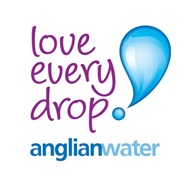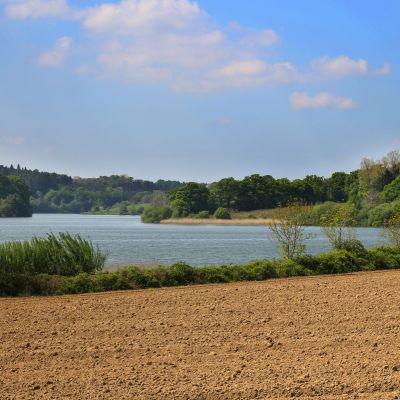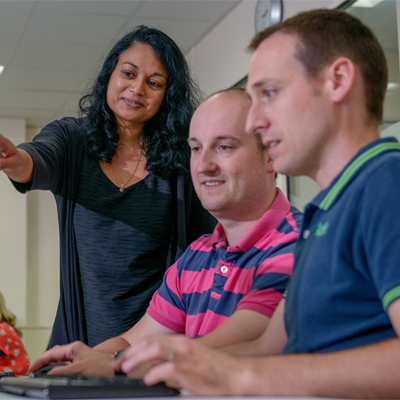Within the Water sector, we work with individual organisations, NGOs, industry and government to understand and reconcile their water challenges. Working together, we are committed to driving water innovation and helping deliver sustainable and climate resilient water systems for society.
Innovation partnership to tackle environmental challenges of the water sector
We are working with Royal HaskoningDHV to find opportunities to deepen and broaden their collaboration on research, education, technology development and knowledge transfer. The parties will collaborate on a wide range of topics and challenges. The two organisations have already identified synergies and opportunities around the following challenges. Read the full press release.
Haskoning
Key facts
Cranfield University and Haskoning have had a strategic partnership agreement in place since 2022 and it was re-signed in 2025 to cover a further three years. Its purpose is to provide a framework within which to tackle some of the most pressing challenges in the water sector.
The extension of the partnership will focus on important challenges such as advancing sustainable wastewater treatment, improving water quality management, supporting net zero ambitions, and strengthening the role of the water sector within the Circular Economy. Bringing the combined expertise of these two organisations together provides opportunities for to fast-track the development and deployment of novel solutions to the challenges faced by the water sector.
Our continued alliance with Haskoning underscores a shared commitment to driving impactful change and delivering pioneering research and initiatives that benefit both communities and the industry.
Haskoning is an independent international consultancy that combines engineering, design and consultancy services with software and technology. Based on our mission Enhancing Society Together, we take responsibility for having a positive impact on the world and contributing to the United Nations Sustainable Development Goals. Our 6,800 employees are spread across offices in more than 25 countries worldwide – working together with clients on future-proof solutions.
Impact of partnership
Since formalising the relationship in 2022, the two organisations have jointly delivered a range of innovative research and sustainable development projects, alongside expert-led workshops, addressing issues including water contaminants, sludge treatment, and phosphorus removal & recovery.
Severn Trent Water
Key facts
- Our work with Severn Trent Water is focused on supporting their delivery of drinking water to the region
- We also support their work on improving wastewater and discharge
- Our collaborative research areas include anaerobic digestion for the purpose of reducing carbon footprint, which is both more environmentally friendly and economic for the customers.
Impact of partnership
Severn Trent and Cranfield University have been working together to bring improved water utility services and quality water to the region. As partners, Severn Trent benefit from privileged access to our world-class facilities and experts. We are able to deliver pilot and full scale work, highlighting the strength of our applied and fundamental research.
Cranfield students also benefit from listening to Severn Trent experts who deliver guest lectures, access to projects based in an industrial environment, improved employment opportunities and genuine networking and collaboration opportunities with water colleagues in the field.
Related news
Water & Sanitation for the Urban Poor (WSUP)
Key facts
Impact of partnership Cranfield University was a founding member of WSUP when it was established in 2005, together with NGO and private sector members and a Cranfield academic sits on the WSUP Board of Directors. WSUP has quickly become recognised as a leading actor in the urban WASH sector, demonstrating how multi-sector partnerships can have significant impact. Cranfield works in partnership with WSUP on collaborative research and often involving our postgraduate students in support of WSUP’s work. Related news Related publications
Anglian Water

- Our work with Anglian Water is focused on supporting their delivery of drinking water to the region
- We also support their work on improving water treatment and developing the next generation of water works
Impact of partnership
As partners, Anglian Water benefit from privileged access to our world-class facilities and experts. We are able to deliver pilot and full scale work, highlighting the strength of our applied and fundamental research.
Cranfield students also benefit from listening to Anglian Water experts who deliver guest lectures, access to projects based in an industrial environment, improved employment opportunities and genuine networking, an Anglian Water bursary, and collaboration opportunities with water colleagues in the field.

We’ve done a lot of stuff in anaerobic digestion with Cranfield, and over the last four years we’ve built five full-scale plants that were guided by that research.
Matt Edwards, Asset Maintenance and Information Manager, Anglian Water




